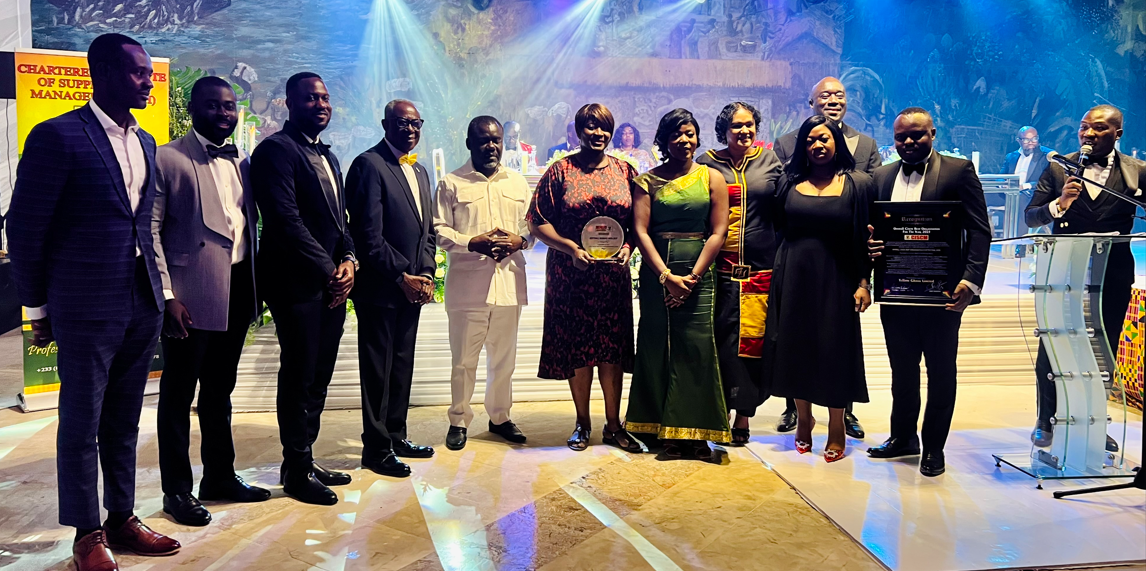
By 2050 nearly a quarter of the world’s population–about 2.5 billion people–will live in Africa. This young, energetic population is a tremendous engine of economic and social mobility, but this progress is threatened by an unlikely source; food loss.
In Ghana alone, as much as 45 percent of fruits and vegetables are wasted, according to a 2019 Mckinsey Report.
That’s enough to feed an additional 12 million people, without clearing a single acre of new farmland or using an additional drop of water. Globally, post-harvest loss accounts for 14 percent of total food production, about 180 million tons annually.
Wasted food is wasted potential. The World Food Program estimates that 23 million.
African children attend school hungry. Children with empty stomachs struggle to concentrate, and underperform.
For Africa to be competitive globally, all of its children must achieve their full potential, and this goal cannot be reached when students are hungry.
Tackling hunger in Africa by tackling post-harvest loss is a uniquely solvable problem.
Post-harvest loss occurs at staggering rates because in many countries perishables
travel long distances from agricultural areas to population centers, where buyers live.
Without the aid of refrigeration, agricultural goods, fruits and vegetables, but also dairy milk and fish, spoil before they can be sold. Not only does post-harvest loss reduce available food, it drives up the cost of the food that remains.
Yet cold chain logistics can also serve as the conduit for commerce. Once linkages are made between producers and buyers, these channels can be leveraged to provide all manner of products – from vegetables to vaccines.
Not only has this, but also returns afforded by effective distribution created value that can catalyze a journey up the value chain for the food producers. Global dairy company Arla, harnessed its origins as an agricultural cooperative, comprising groups of small dairy farmers in Denmark, to today becoming one of the world’s leading fast moving consumer packaged goods companies.
Similarly in South Africa FMCG behemoths, Pioneer Foods and Rhodes Food Group evolved from the amalgamation of farming cooperatives that then expanded their operations to a wide range of products like fruit juices, canned products, jams and convenience meals. Africa’s demographic dividend is not a given; it’s a potential that must be nurtured.
By ensuring food security through innovative solutions like cold chain logistics, we can cultivate a generation ready to seize opportunities and drive Africa’s transformation.
The writer is a Board Member, Global Cold Chain Foundation and
CEO, FreezeLink
Aretha Forson: KIC start-up promoting sustainability in haircare industry
Kosmos Innovation Center (KIC) continues to drive innovation and sustainability by supporting ground-breaking businesses, and one such success story is Aretha Wear It Out.
The plant-based haircare brand is making a significant impact in the beauty industry by catering to individuals with textured hair using natural, eco-friendly ingredients.
Plant-Based Solutions for Haircare
One of the company’s brands, Aretha Wear It Out specializes in haircare solutions derived from nuts, seed oils, and natural herbs to address common hair health challenges. With a product line of six sustainably produced items, the brand focuses on nourishing and strengthening textured hair while maintaining a commitment to sustainability.
Speaking about the brand’s mission, Co-founder Aretha Forson stated, “Aretha is redefining haircare for textured hair with plant-based solutions, sustainably crafted to preserve hair health and empower women.
With the support of Kosmos Innovation Center, we are growing a future rooted in sustainability and self-care.”
Commitment to Sustainability
Sustainability remains a key pillar of Aretha’s operations. The company prioritizes eco-friendly packaging and ensures that its production processes align with environmental consciousness. By integrating sustainability into its core values, Aretha is helping customers make responsible choices while maintaining healthy hair.
Through KIC’s funding and mentorship, Aretha has expanded its operations and refined its business model.
The support has enabled the company to scale its product line and strengthen its sustainability efforts. KIC continues to play a crucial role in nurturing young entrepreneurs in Ghana, helping them transform innovative ideas into successful businesses.
A Bright Future Ahead
Aretha’s vision extends beyond just providing haircare products; it aims to inspire self-care and confidence among individuals, particularly women. With its emphasis on sustainability and high-quality formulations, the brand is set to leave a lasting mark on the haircare industry.
Kosmos Innovation Center remains committed to empowering young entrepreneurs like Aretha Forson, ensuring that businesses can thrive while contributing to a more sustainable future.
Aretha Forson company is one of the winners of the 2024 KIC AgriTech Challenge Pro. Working in partnership with the Mastercard Foundation, KIC is empowering many young people to become entrepreneur’s whiles providing employment opportunities within the agricultural and agri-adjacent sectors.
BY OWUSU AKOTO
The post Harvesting Hope: How cold chain can transform Africa’s food supply and future appeared first on Ghanaian Times.
Read Full Story






Facebook
Twitter
Pinterest
Instagram
Google+
YouTube
LinkedIn
RSS